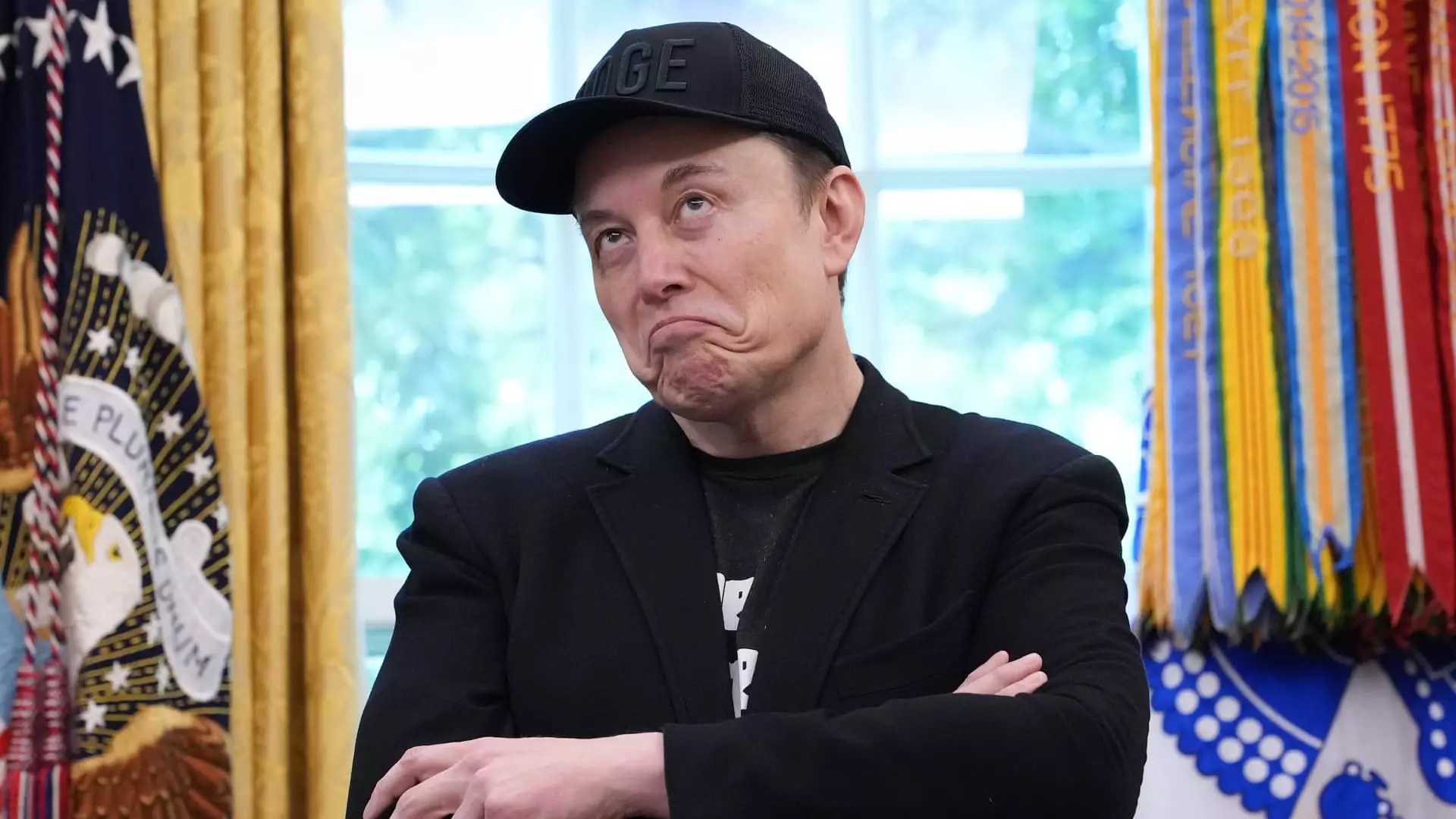Elon Musk’s recent critique of the government’s spending bill signals a rare moment of vocal resistance from a tech billionaire towards mainstream economic policy. Rather than toeing the party line, Musk’s outspoken opposition calls into question the true cost of such legislation. His endorsement of Senator Rand Paul’s warning about the bill’s impact on national debt underscores a growing frustration among influential figures about short-term political gains overshadowing long-term financial sustainability. Musk sees the bill not just as an economic misstep, but as a dangerous trend that may cement America’s fiscal fragility for decades to come.
His comparison of the bill to “debt slavery” reflects a deep concern that the current spending spree will impose an unsustainable burden on future generations. By highlighting the potential addition of trillions of dollars to the national debt, Musk emphasizes that financial recklessness today maylead to economic instability tomorrow. His stance is provocative, yet it taps into a broader debate about whether American policymakers are prioritizing short-term appeasements over long-term fiscal health. This confrontation is particularly striking given Musk’s prominence in the industries most affected—energy, transportation, and innovation—which directly benefit from government-sponsored programs and incentives.
Contradictions and Corporate Interests
Musk’s criticism reveals a complex relationship with government policy: while he often advocates for deregulation and free-market principles, he also benefits from government incentives, especially in the renewable energy sector. His companies thrive on policies supporting electric vehicles, solar energy, and sustainable initiatives, making his opposition to cuts in these areas somewhat hypocritical. This duality underscores a broader dilemma faced by modern entrepreneurs—how to balance lobbying for favorable policies while promoting a free-market ethos.
Moreover, Musk’s fiery commentary during the Trump era highlights how deeply intertwined technology, politics, and personal rivalry have become. His public spat with Trump over electric vehicle mandates reflects an opportunistic challenge to authority, but also exposes vulnerabilities in how political decisions can ripple through stock markets. The market’s reaction—Tesla losing billions in value—demonstrates the tangible impact that political animosity can have on investor confidence and corporate valuation. Musk’s aggressive stance, therefore, becomes both a principled critique and a strategic gamble, risking short-term market repercussions for the sake of long-term credibility.
Power Dynamics and Future Implications
Musk’s outspoken views serve as a reminder that high-profile entrepreneurs are no longer passive observers of policy—they are active participants wielding influence and challenging the status quo. His willingness to publicly confront both political figures and legislative decisions signifies a shift in how economic discourse is shaped in the modern era. This challenges traditional power structures, suggesting that economic stakeholders are increasingly willing to follow their convictions, even if it means risking their business interests.
Looking ahead, Musk’s vocal opposition could catalyze a broader conversation about fiscal responsibility and the true cost of government spending. If influential voices continue to question the narrative—particularly those with skin in the game—there might be a push for more transparent and sustainable policy-making. Conversely, entrenched political interests and the complexity of balancing economic growth with debt management might push the debate into further polarization. Musk’s stance is a stark call to rethink how the United States navigates its financial future, and the fallout from this political-entrepreneurial clash will likely resonate for years to come.

